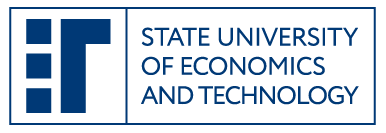Global Economy and Ukraine's Geo-Economic Priorities
DOI:
https://doi.org/10.62911/ete.2024.02.02.03Keywords:
geopolitics, geoeconomics, transformation, economic system, prioritiesAbstract
The article researches the transformation of the economic system in modern realities, defines the main theoretical principles of geoeconomic policy formation in the conditions of geopolitical challenges, analyses the dynamics of the global economy and its state, forecasts the opportunities for the functioning of Ukraine under conditions of geoeconomics as well as considers possible scenarios for the formation of the geoeconomic policy of Ukraine and their priorities. Since gaining independence, Ukraine has been rebuilding its geoeconomic policy strategy. Even before Ukraine started changing its geoeconomic policy due to the events in the east of the country, the state had not decided which vector to choose and where to move next, and the main principle was to achieve multi-vector cooperation with the EU and the West in the economic, political and military spheres, while being completely dependent on Russia, including production that was oriented to the markets of the CIS countries. The relevance of the study is obvious, as Ukraine has been in martial law for more than a year. This explains many economic problems, the caution of foreign investors to enter Ukraine, and even the lack of competitiveness of the Ukrainian economy in foreign markets. Therefore, there is an urgent need to transform Ukraine's geo-economic priorities. The purpose of the study is to transform the economic system of Ukraine and to outline the main principles of Ukraine's geo-economic priorities. In accordance with the topic, the article solves the following tasks:
- to study the theoretical foundations of geoeconomic policy formation;
- outline the challenges of the global world and Ukraine's reforms in the global transformation;
- to propose the Ukrainian dimension of new geoeconomic priorities.
The subject of the study is the theoretical and methodological foundations of Ukraine's geo-economic priorities. The object of the study is the process of researching Ukraine's geo-economic priorities. To solve the tasks set in the work, general scientific research methods and a number of specific methods of scientific research cognition were used, namely: scientific abstraction, comparison, grouping, systematization, graphical, statistical, economic analysis and logical analysis.
References
Annual inflation more than tripled in the EU in 2022. (2023). Eurostat. [Data file]. Retrieved from https://ec.europa.eu/eurostat/web/products-eurostat-news/w/ddn-20230309-2
China: is it burdening poor countries with unsustainable debt? (2022). BBC News. https://www.bbc.com/news/59585507.
Fiscal Monitor: Strengthening the Credibility of Public Finances. (2021). IMF Fiscal Monitor. https://www.imf.org/en/Publications/FM/Issues/2021/10/13/fiscal-monitor-october-2021.
Forecast 2022 (2022). UIFuture. https://uifuture.org/publications/prognoz-2022.
Friend-shoring. (2022). International Economic and Policy Blog. https://ielp.worldtradelaw.net/2022/04/friend-shoring.html.
GDP impact of trade restrictions with Russia 2022. (2022). [Data file]. Retrieved from https://www.statista.com/statistics/1294709/gdp-impact-of-trade-restrictions-with-russia-by-country.
Global economic growth downgraded due to spillover from Ukraine war. (2022). Unated Nations. https://news.un.org/en/story/2022/05/1118532.
Global Forecast Update (2023). The Conference Board Inc. https://www.conference-board.org/publications/global-economic-forecast-update-january-2023
Global Purchasing Manager Index (PMI) for manufacturing and new export orders from January 2018 to August 2023. (2023). Statista. [Data file]. Retrieved from https://www.statista.com/statistics/1032013/global-purchasing-manager-index-manufacturing-new-export-orders/
Kulishov, V. (Ed.). (2023). The global economy: development, transformations, challenges. Prague: OKTAN PRINT. DOI number: 10.46489/GE23UA-01
Mietule, I., Purii, H., Maksymova, I., Shaikan, A., Hushko, S., Kulishov, V. (2023). Digital Humanization of Education in the Light of Geopolitical Challenges. Society. Integration. Education. Proceedings of the International Scientific Conference, 1, 373-384. DOI:10.17770/sie2023vol1.7160
Real GDP growth (2024). International Monetary Fund. https://www.imf.org/external/datamapper/NGDP_RPCH@WEO/OEMDC/ADVEC/WEOWORLD
The great transition. (2022). Economic Outlook https://www.studocu.com/en-au/document/university-of-new-south-wales/applied-corporate-finance/credit-suisse-investment-outlook-2022/23437491
The State Budget of Ukraine. (2023). Ministry of Finance https://index.minfin.com.ua/ua/finance/budget/gov/
Trends in global export value of trade in goods from 1950 to 2022. (2023). Statista. [Data file]. Retrieved from https://www.statista.com/statistics/264682/worldwide-export-volume-in-the-trade-since-1950/
World Bank Indicators. (2023). [Data file]. Retrieved from https://data.worldbank.org/indicator
World Economic Outlook. (2021). [Data file]. Retrieved from https://www.imf.org/en/Publications/ WEO/Issues/2021/10/12/world-economic-outlookoctober-2021.
World Economic Situation and Prospects. (2023). Unated Nations. Department of Economic and Social Affairs. Economic Analysis. Briefing, No. 172 https://www.un.org/development/desa/dpad/publication/world-economic-situation-and-prospects-june-2023-briefing-no-172/
Yurchyshyn, V. (Ed.). (2020). Economic freedom to strengthen ukraine’s social and economic development in the context of global transformations. Kyiv: Zapovit. https://razumkov.org.ua/uploads/article/2020_Economic_freedom.pdf
Yurchyshyn, V. (Ed.). (2021). Perspectives for post-coronavirus economic transformations and their impact on the development of countries. the place of ukraine in the post-crisis World. Kyiv: Zapovit. https://razumkov.org.ua/uploads/article/2021_perspectives_for_economic_transformations.pdf
Downloads
Published
Issue
Section
License

This work is licensed under a Creative Commons Attribution-NonCommercial 4.0 International License.









